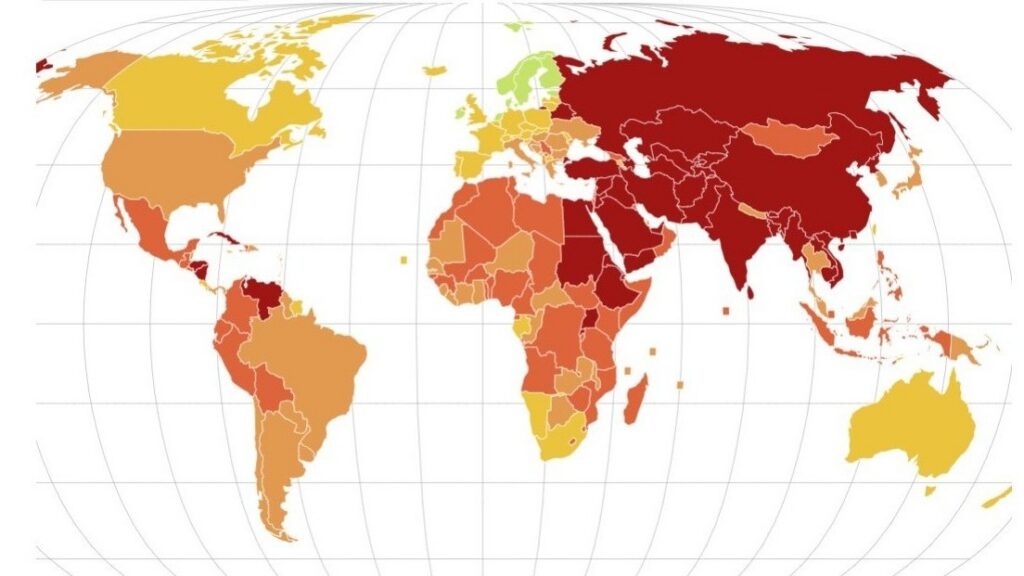Estonia has climbed to second place in the 2025 World Press Freedom Index published by Reporters Without Borders, marking its highest-ever position and reaffirming its status as one of the world’s most robust environments for independent journalism; only Norway, which has topped the index for nine consecutive years, ranks higher.
The news comes against a stark backdrop: RSF has downgraded the global state of press freedom to a “difficult situation” for the first time in the index’s history. The biggest driver of this decline is not censorship or violence – although those remain widespread – but economic fragility. Across the world, media outlets are buckling under financial strain, with many forced to close, lay off staff or compromise editorial independence to survive.
“Without economic independence, there can be no free press,” RSF warns in its annual statement. The economic indicator in this year’s index reached its lowest level ever, as advertising revenue continues to shift to tech giants, public media funding is slashed or politicised, and ownership of news outlets becomes increasingly concentrated in the hands of a few powerful actors.
In the United States (now ranked 57th), local journalism is collapsing into “news deserts.” Authoritarian governments – from Nicaragua and Belarus to Iran and Myanmar – are using economic pressure to silence media and force journalists into exile.
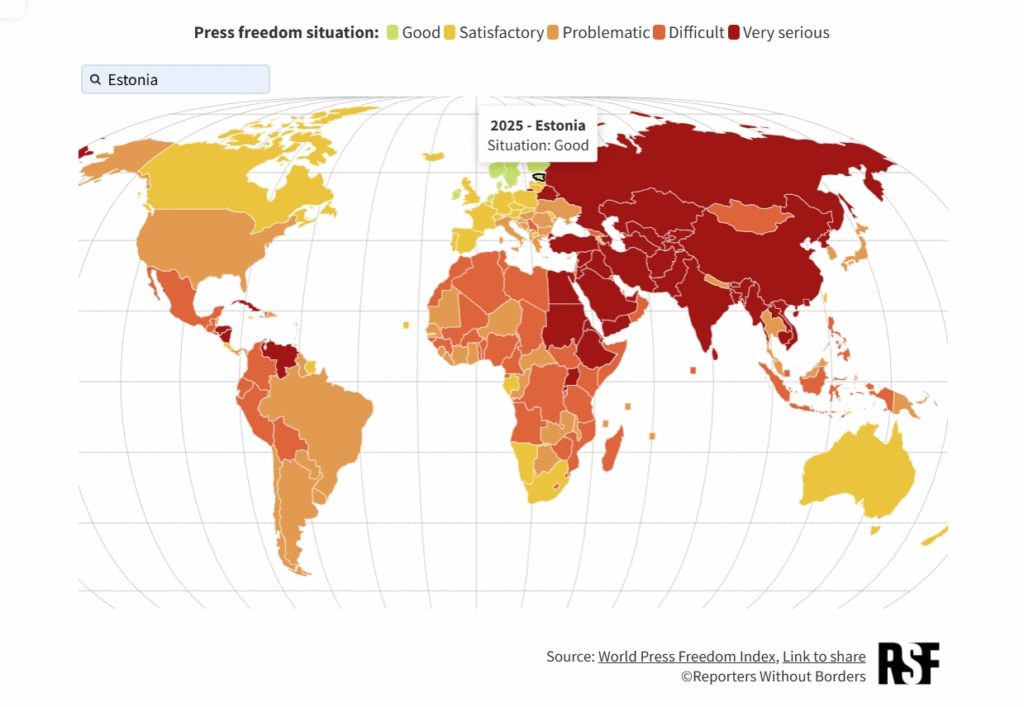
Even traditionally strong media environments are showing cracks. France, Canada and Australia have seen troubling increases in ownership concentration. In over half of the countries surveyed, journalists report regular interference from media owners – often aligned with political or business interests. Meanwhile, the long-promised European Media Freedom Act, aimed at securing financial independence and pluralism across the EU, remains stuck in limbo.
Despite these challenges, Estonia has steadily climbed the rankings through a combination of legal protections, public trust, digital innovation and relatively low levels of political and commercial interference. Alongside its Baltic neighbours and Nordic peers, Estonia demonstrates that it is still possible to maintain a high standard of press freedom even amid global turbulence.
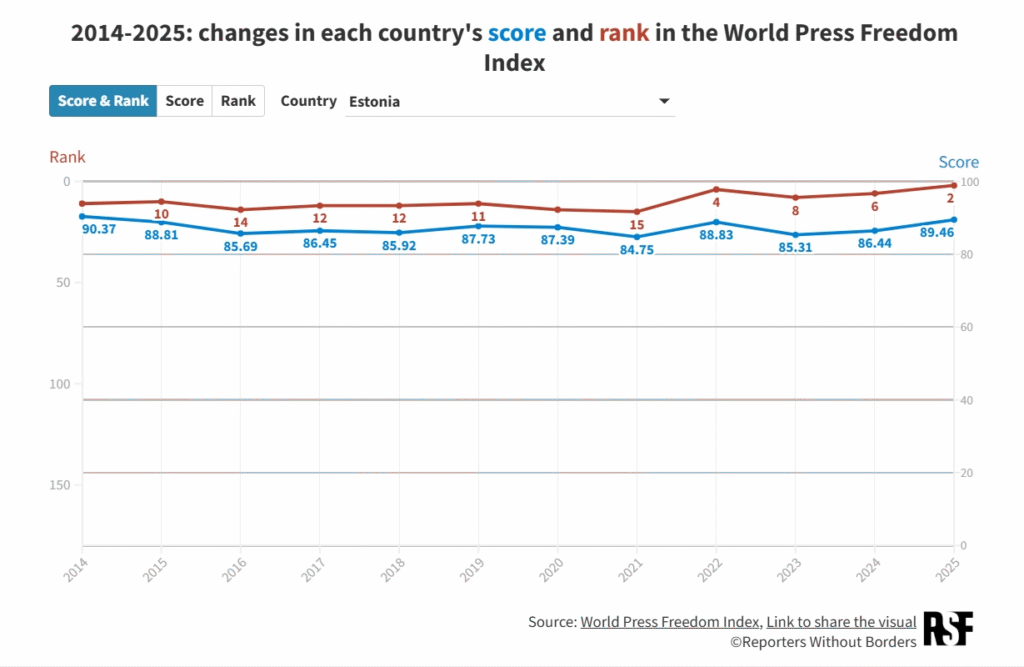
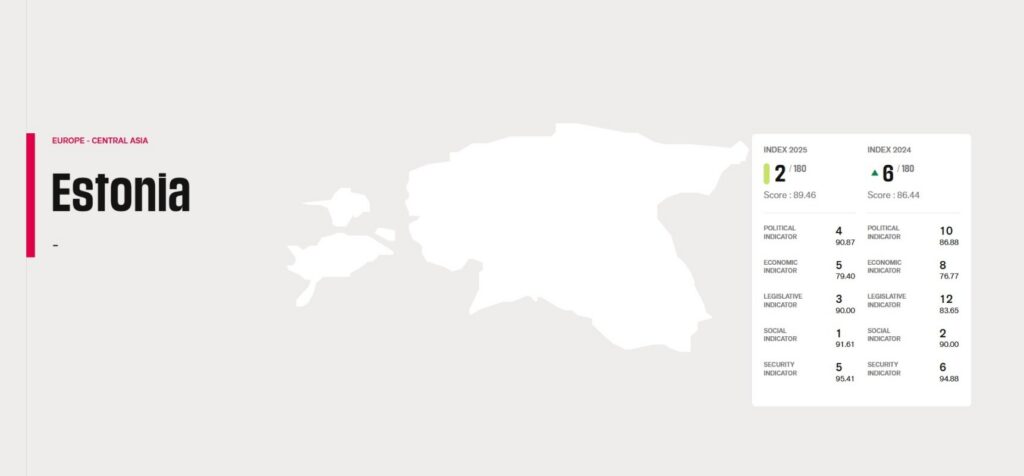
Estonia’s ascent, overtaking the Netherlands (now third) and Sweden (fourth), reflects consistent performance across all five indicators RSF uses to assess press conditions: political context, legal framework, safety, sociocultural environment and economic sustainability. It is also one of the few countries where the media ecosystem is still considered “satisfactory” or better.
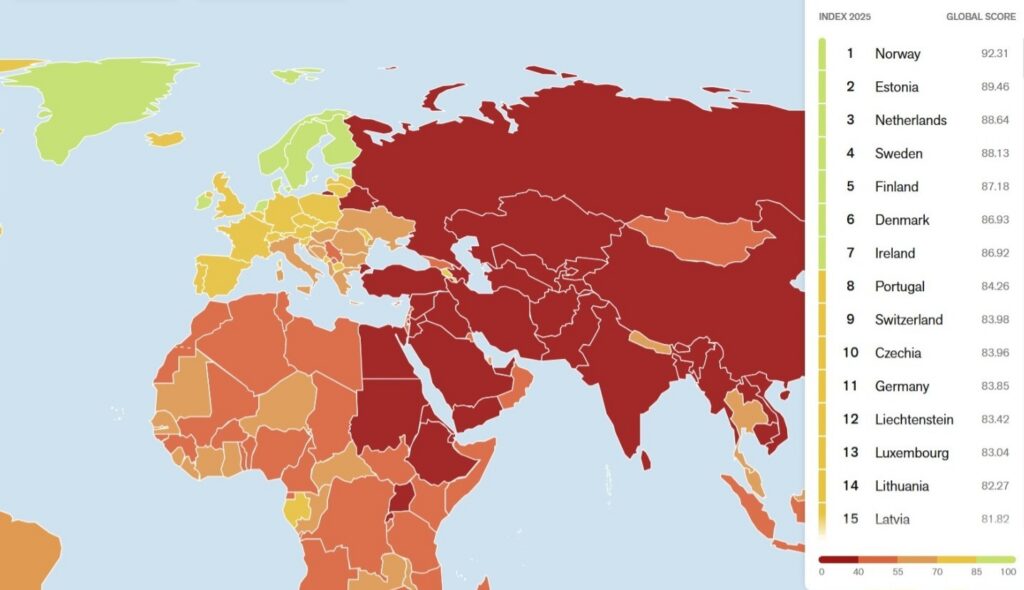
RSF’s findings are a clear call to action. In more than 160 countries, media outlets are struggling to remain viable – and without financial stability, journalistic independence cannot be guaranteed.

